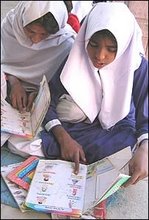PREAMBLE: This issue features a report recently released by six international humanitarian NGOs (Amnesty International, Christian Aid, CAFOD, CARE, OXFAM, Save the Children, Trocaire), documenting the situation in Gaza as the worst since the 1967 war between Israel and its neighbours. The deterioration can be attributed mostly to the period since mid-2007 when Israel imposed a blockade. For "balance", we cite two reports from Israeli media; we also recognize that – like Canadians and their government –the views of all Israelis are not necessarily reflected in the policies of their government.
Canadian Complicity: This report should be of particular concern for Canadians, especially because Canada (under the minority Conservative government of Stephen Harper) is the only member country to vote against a recent United Nations Human Rights Council motion calling for immediate international action to force Israel to allow fuel, food, medicine and other essential items to be sent to the Gaza Strip, to reopen border crossings and to end its “grave violations” in the occupied Palestinian territory. References: 1. http://presscue.com/node/45049 2. http://radio.un.org/detail/8975.html
The UN Human Rights Council motion expressed deep concern about the “incessant and repeated Israeli military attacks and incursions,” which had killed and injured many Palestinian civilians. The resolution demanded “that the occupying power, Israel, lift immediately the siege it has imposed on the occupied Gaza Strip, restore continued supply of fuel, food and medicine and reopen the border crossings.” It called for protection of civilians in occupied Palestine in line with human rights law and international humanitarian law, and urged all parties to refrain from violence against civilians.
The text also called on the Office of the High Commissioner for Human Rights (OHCHR), to report to the Council at its next session on the progress made towards implementing the resolution. The High Commissioner Ms. Arbour (a respected Canadian jurist) told the Council’s special session that the situation for both Palestinians and Israelis will continue to deteriorate unless both parties to the conflict and the international community take broader steps to action. “All parties concerned should put an end to the vicious spiral of violence before it becomes unstoppable,” she said. “To this end, they must ensure accountability for breaches of international humanitarian law and violations of international human rights law through credible, independent, and transparent investigations.”
Ms. Arbour added that the Israeli practice of collective punishment, disproportionate use of force and targeted killings continued, as did the Palestinian militants’ practice of indiscriminate firing of mortars and rockets into Israel.
Shortly afterwards, in early March 2008, Louise Arbour tended her resignation. While denying pressure to leave, there is no doubt she has been under continuing pressure from various interests for being such a forceful advocate for human rights. While Ms Arbour gave family reasons for stepping down, the fact that her own country Canada voted uniquely against this UN Human Rights Council resolution should not be ignored.
Reference: http://www.amnesty.org/en/news-and-updates/news/un-high-commissioner-human-rights-resigns-20080310
Feature Report: A HUMANITARIAN IMPLOSION.
Basic Services: The blockade is destroying public service infrastructure in Gaza. The Israeli government prevents repair and maintenance of electricity and water service infrastructure in Gaza by prohibiting the import of spare parts. The impact of this is amplified by Israel’s parallel punitive restrictions on fuel and electricity. Hospitals cannot generate electricity to keep lifesaving equipment working or to generate oxygen, while 40-50 million tons of sewage continues to pour into the sea daily 14. In September 2007, an UNRWA survey in Gaza revealed a nearly 80% failure rate in schools grades four to nine, with up to 90% failure in Mathematics. In January 2008, UNICEF reported that schools in Gaza had been canceling classes that are high on energy consumption, such as IT, science labs and extra curricular activities.
Basic Medical Supplies and Access to Treatment: As a result of fuel and electricity restrictions, hospitals are currently experiencing power cuts lasting for 8-12 hours a day. There is currently a 60-70 % shortage reported in the diesel required for hospital power generators. According to the World Health Organization, the proportion of patients given permits to exit Gaza for medical care decreased from 89.3% in January 2007 to 64.3% in December 2007, an unprecedented low. It is important to note that even those patients who are granted permits to exit Gaza are often denied access at the crossing itself. Twenty-seven such cases were reported in the month of October alone. WHO has been monitoring the access of patients to specialized health services not available within Gaza. One main indicator monitored since October 2007 is the death of patients due to lack of access to referral services. During the period October-December 2007, WHO has confirmed the deaths of 20 patients, including 5 children.
A New Policy for Gaza: The blockade has effectively dismantled the economy and impoverished the population. Israel’s policy affects the civilian population of Gaza indiscriminately and constitutes a collective punishment against ordinary men, women and children. The measures taken are illegal under international humanitarian law. Israel has the right and duty to defend itself against indiscriminate rocket attacks against its civilian population, but the current policy fails to provide Israel with increased security and has led to increasing polarization. As the head of UNRWA has pointed out, ‘Hungry, unhealthy, angry communities do not make good partners for peace.’ International efforts should be directed towards securing a swift end to the blockade of Gaza. Israel’s current policy of isolation and refusal to engage with all elements of the Palestinian leadership only closes doors to negotiations while reinforcing the political and humanitarian crisis. There is an urgent need for Palestinian dialogue and reconciliation in order to create and sustain a credible and effective peace process with Israel. The international community must provide the political support to facilitate such an undertaking. To date, failure to address the situation in Gaza has harmed both Palestinians and Israelis and has been detrimental to the broader peace process itself.
Source: Amnesty International, Christian Aid, CAFOD, CARE, OXFAM, Save the Children and Trocaire. The Gaza Strip: a humanitarian implosion. Embargoed until March 6, 2008 http://my.ynet.co.il/pic/news/5.3.08/embargoedGazalowreswithout.pdf
As Reported in the Israeli Media
ISRAEL NEWS: The situation for 1.5 million Palestinians in the Gaza Strip is worse now than it has ever been since the start of the Israeli military occupation in 1967. The current situation in Gaza is man-made, completely avoidable and, with the necessary political will, can also be reversed. Gaza has suffered from a long-term pattern of economic stagnation and plummeting development indicators. The severity of the situation has increased exponentially since Israel imposed extreme restrictions on the movement of goods and people in response to the Hamas take over of Gaza and to indiscriminate rocket attacks against Israel. This report illustrates the gravity of the current situation across key sectors.
According to the report, the economic isolation of the 1.5 Palestinians living in Gaza has worsened unemployment and poverty and caused education and health services to deteriorate. Over a million people – 80% of the families - in the Strip are currently dependent on food supply from international aid agencies, compared to 63% of the families in 2006. Additionally, the number of trucks allowed to enter Gaza daily currently stands at only 45, compared to an average of 250 in the past. The Israeli ban on the transfer of raw materials has led to the freezing of 95% of industrial projects. As a result, almost all the factories in the Strip have gone bankrupt and forced to close.
Hamas' takeover of the Strip has also had a devastating effect on the local economy. Between June and September 2007, the rate of Palestinians earning less than $1.2 a day rose from 55% to 70%. The unemployment rate in Gaza currently stands at 40% and experts believe it might soon reach 50%. In the last year alone, some 75,000 people have lost their jobs.
Hike in Food Prices: The closure on the Strip and the collapse of the local economy have also contributed to a sharp increase in food prices. In 2007, Gazans spent 62% of their income on food supplies, compared to only 37% in 2004. The prices of flour and milk climbed 34% and 30% respectively between May and July 2007. Rice prices jumped by 20% over the same period.
As a result of the limited fuel and electricity supply, hospitals in Gaza face long power cuts, which last up to 12 hours a day. The report states that 18.5% of Palestinians who applied for medical treatment outside the Strip were rejected in 2007 and that the number of Palestinians who were approved treatment outside Gaza dropped by 25%. Twenty people awaiting an entry permit to Israel to receive medical treatment have died between October-December 2007, including five children.
'Exert greater pressure on Israel': The report's authors call on the UK government and the European Union to exert pressure on the Israeli government to lift the blockade on Gaza and refrain from limiting fuel and electricity supply to the Strip. The groups also urge the UK and EU to help mediate a truce between the Palestinian factions, in order to facilitate talks between Israel and the PA. The report further calls on the Palestinian terror groups to cease rocket attacks and refrain from targeting civilians, and urges Israel to stop strikes in Gaza.
Source: Israel News March 6, 2008/yNetNews.com Mar 6, 2008
http://www.ynetnews.com/articles/0,7340,L-3515538,00.html
JERUSALEM POST: For more on Israel’s rejection of the report, laying blame on Hamas, visit Jerusalem Post, March 7, 2008. http://www.jpost.com/servlet/Satellite?pagename=JPost%2FJPArticle%2FShowFull&cid=1204546412033
FROM a Great Canadian and World Statesman
"A great gulf... has... opened between man's material advance and his social and moral progress, a gulf in which he may one day be lost if it is not closed or narrowed..."
Lester B Pearson
http://nobelprize.org/nobel_prizes/peace/laureates/1957/pearson-lecture.html
Saturday 15 March 2008
Subscribe to:
Posts (Atom)
INSPIRATIONAL WELCOME ............................... from T.S.Eliot's "Little Gidding"
If you came this way From the place you would come from... It would be the same at the end of the journey...
If you came, not knowing what you came for, It would be the same... And what you thought you came for Is only a shell, a husk of meaning... From which the purpose breaks only when it is fulfilled If at all.




















